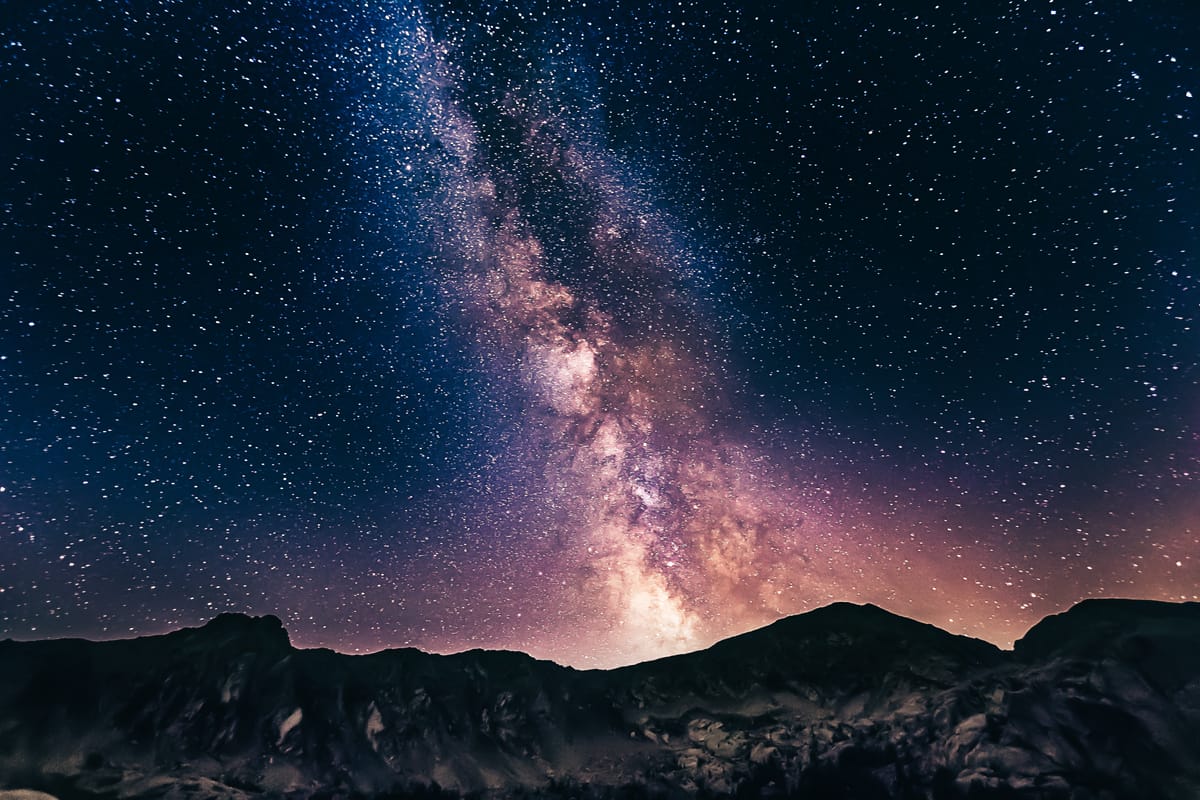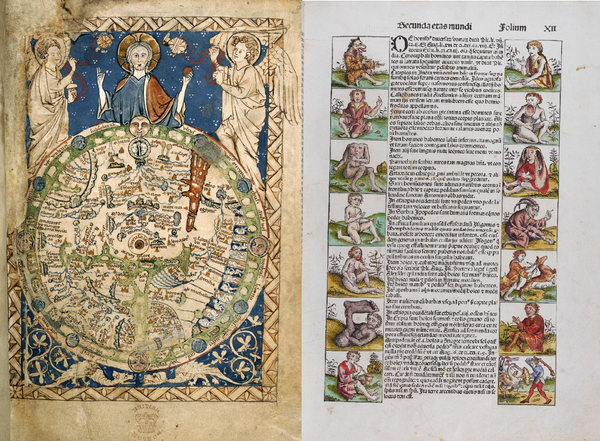The gods of heaven and earth

The Apostle Paul says that the gods of other nations are real, but there is only one Creator God through which and by which all things (including the gods) were made.
1 Corinthians 8:4-6 ESV
Therefore, as to the eating of food offered to idols, we know that “an idol has no real existence,” and that “there is no God but one.” 5 For although there may be so-called gods in heaven or on earth—as indeed there are many “gods” and many “lords”— 6 yet for us there is one God, the Father, from whom are all things and for whom we exist, and one Lord, Jesus Christ, through whom are all things and through whom we exist.
To those familiar with the Deuteronomy, this phrase "in heaven or on earth" will bring you back to Deuteronomy 3:24.
Deuteronomy 3:24 ESV
O Lord GOD, you have only begun to show your servant your greatness and your mighty hand. For what god is there in heaven or on earth who can do such works and mighty acts as yours?
It's a quote from Moses, speaking to God. He compares his God to the others in heaven and on earth, saying none of them are like Him. Indeed none are like Him, and His power is exhibited over His creation in the form of judgement when both men and gods misbehave.
Isaiah 34:1–6 ESV
Draw near, O nations, to hear,
and give attention, O peoples!
Let the earth hear, and all that fills it;
the world, and all that comes from it.
2 For the LORD is enraged against all the nations,
and furious against all their host;
he has devoted them to destruction, has given them over for slaughter.
3 Their slain shall be cast out,
and the stench of their corpses shall rise;
the mountains shall flow with their blood.
4 All the host of heaven shall rot away,
and the skies roll up like a scroll.
All their host shall fall,
as leaves fall from the vine,
like leaves falling from the fig tree.
5 For my sword has drunk its fill in the heavens;
behold, it descends for judgment upon Edom,
upon the people I have devoted to destruction.
6 The LORD has a sword; it is sated with blood;
it is gorged with fat,
with the blood of lambs and goats,
with the fat of the kidneys of rams.
For the LORD has a sacrifice in Bozrah,
a great slaughter in the land of Edom.
Notice the blurring of the line between the nations of earth and the host of heaven. Both are receiving God's wrath. The concept of the heavenly host being sinful and receiving God's judgement is found throughout the Bible, not the least of which being Psalm 82, Job 4:18 and Job 15:15.

In Isaiah God addresses the lessor gods as the heavenly host. In 1 Kings, he calls out specific gods of the nations by name, judging his people for worshiping them instead of Him.
1 Kings 11:31–33
And he said to Jeroboam, “Take for yourself ten pieces, for thus says the LORD, the God of Israel, ‘Behold, I am about to tear the kingdom from the hand of Solomon and will give you ten tribes 32 (but he shall have one tribe, for the sake of my servant David and for the sake of Jerusalem, the city that I have chosen out of all the tribes of Israel), 33 because they have forsaken me and worshiped Ashtoreth the goddess of the Sidonians, Chemosh the god of Moab, and Milcom the god of the Ammonites, and they have not walked in my ways, doing what is right in my sight and keeping my statutes and my rules, as David his father did.
This is fascinating. God isn't judging the gods in this situation. He is judging his own nation for worshiping these gods and refusing to live Godly lives. This doesn't mean what the gods were doing was acceptable by any means, but it is clear that their punishment is simply not the focus of this message. The gods of the nations show up many times and that specific phrase is used in various places:
2 Kings 18:33
Has any of the gods of the nations ever delivered his land out of the hand of the king of Assyria?
Isaiah 36:18
Beware lest Hezekiah mislead you by saying, “The LORD will deliver us.” Has any of the gods of the nations delivered his land out of the hand of the king of Assyria?
2 Kings 19:12–18
Have the gods of the nations delivered them, the nations that my fathers destroyed, Gozan, Haran, Rezeph, and the people of Eden who were in Telassar?
2 Chronicles 32:17
And he wrote letters to cast contempt on the LORD, the God of Israel, and to speak against him, saying, “Like the gods of the nations of the lands who have not delivered their people from my hands, so the God of Hezekiah will not deliver his people from my hand.”
Deuteronomy 29:18
Beware lest there be among you a man or woman or clan or tribe whose heart is turning away today from the LORD our God to go and serve the gods of those nations. Beware lest there be among you a root bearing poisonous and bitter fruit,
2 Chronicles 32:14
Who among all the gods of those nations that my fathers devoted to destruction was able to deliver his people from my hand, that your God should be able to deliver you from my hand?
This is just a few examples, but how are we to know if the "gods of the nations" are gods of the earth or heaven? Well we don't really know. It seems reasonable to since the nations are on earth that their gods are the gods of earth and not the heavenly host that are judged but there are good arguments to the contrary. The best argument I know of for a distinction between the gods of heaven vs the gods of earth is how Deuteronomy addresses both:
Deuteronomy 4:15–19
Therefore watch yourselves very carefully. Since you saw no form on the day that the LORD spoke to you at Horeb out of the midst of the fire, 16 beware lest you act corruptly by making a carved image for yourselves, in the form of any figure, the likeness of male or female, 17 the likeness of any animal that is on the earth, the likeness of any winged bird that flies in the air, 18 the likeness of anything that creeps on the ground, the likeness of any fish that is in the water under the earth. 19 And beware lest you raise your eyes to heaven, and when you see the sun and the moon and the stars, all the host of heaven, you be drawn away and bow down to them and serve them, things that the LORD your God has allotted to all the peoples under the whole heaven.
It could be said that gods of the earth are those who dwell in idols and gods of heaven are the sun, moon, and stars that are worshiped. This speculation is an interesting one when you consider that the planets and stars were in fact associated with specific gods in almost every religion and the Bible refers to angels and the heavenly host as being stars consistently.

But what of the gods of the earth? The Bible doesn't specify that concept nearly as much. Well, if they are those that inhabit idols then according to Paul they are demons.
1 Corinthians 10:19–20
What do I imply then? That food offered to idols is anything, or that an idol is anything? 20 No, I imply that what pagans sacrifice they offer to demons and not to God. I do not want you to be participants with demons.
This speculation intrigues me, because lining up with Paul says here with the images god warns against using and the images we know they used... These gods of the earth could be considered to be the unclean disembodied spirits of the dead Nephilim (If you are unfamiliar with this concept read Unseen realm and Demons by Dr. Michael Heiser).

The spirit of a dead Nephilim could make sense as earth gods since they were born on earth and not created in the heavens by God like the fallen angels. This distinction might actually be a helpful way to think of things. Although to those familiar with these topics it might make plenty of sense, it doesn't mean this is truly the case. I only wanted to bring up the concept because I found it fascinating. This topic is debated and we really can't firmly stand on Biblical ground if we claim it's the correct interpretation. Nonetheless, I hope you're as entertained as I am by the idea.
Although the true distinction is still debated, we do know the following:
- The "gods" are very real
- The Bible associates them with both heaven and earth (1 Corinthians 8, Deuteronomy 3)
- They are still around (Ephesians 6)
- They are in trouble (Psalm 82, Revelation 20)
- They have or have yet to wage war in heaven (Revelation 12)




